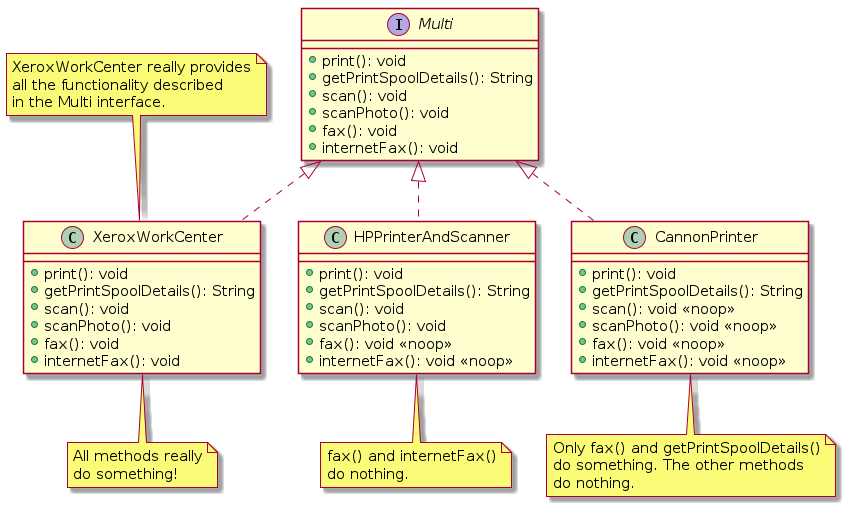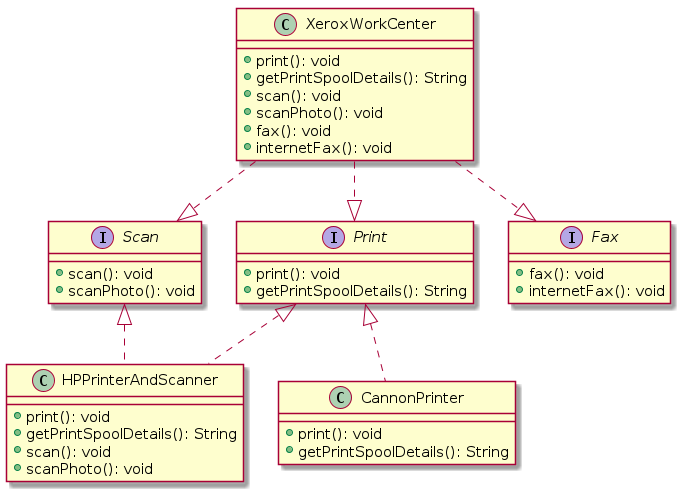Interface Segregation Principle¶
No client should be forced to depend on methods it does not use.
Print and Fax Machines (bad design)¶
NOTE: This design violates the Interface Segregation Principle.
INFO: Methods marked with «noop» mean they perform no operation at all. They are blank, empty, no-operation methods overridden just to satisfy the non-segregated Multi interface.

We have an interface describing 8 methods. Three classes implement this interface. One of them really implements all the methods, but the other two classes implement only some methods, leaving other method with blank “implementations”, meaning, invoking those methods do nothing for those classes.
Overriding methods with blank/empty implementations is almost always an indication of questionable, smelly, or bad design altogether.
The interface is not segregated here. It tries to do too much. Again, “No client should be forced to depend on methods it does not use.”
A programer creates an instance of CannonPrinter and observes they can invoke the internetFax() method. Except it won’t do anything. The developer will trust the editor/IDE auto-complete and intellisense features and assume that method really does send an internet fax.
If I create an ArrayList and I see it has an add(), is it too much to expect that it adds the value/object to the list? No. We expect it to do just that. Same if I see an internetFax() method. I expect it sends internet fax. Simple as that.
This is a catastrophe in the making! Don’t design things like this.
Print and Fax Machines (better design)¶
NOTE: This design abides by the Interface Segregation Principle.
Let’s split the big interface into smaller, more specialized interfaces.

First of all, we segregated the bloated interface into smaller, cohesive interface. The smaller interfaces more closely abide by the Single Responsibility principle.
Now classes are not forced to have blank implementations for methods they really cannot honor. For example, CannonPrinter will not have a blank, untruthful fax() method. It now only implements methods it can really fulfill.
As an aside, it would be possible to have a parent interface with common methods, and then more dedicated and specialized interfaces adding further methods as necessary.
Identifying ISP Violations¶
Fat interfaces (too many methods);
Interfaces with low cohesion (methods that don’t relate or really belong together);
Empty method implementations;
Fat interfaces may be the a consequence of breaking the Single Responsibility Principle. An interface have a single responsibility.
Printing, scanning and faxing are three different concepts. No single interface should really handle all those concepts
By segregating the interfaces, we indirectly end up following the Liskov Substitution Principle, because we can replace the class type CannonPrinter with the interface Print, and vice-versa.
Most of the SOLID Principles are intricately linked to one another.
SOLID Principles complement each other, and work together in unison, to achieve the common purpose of well-designed software.
